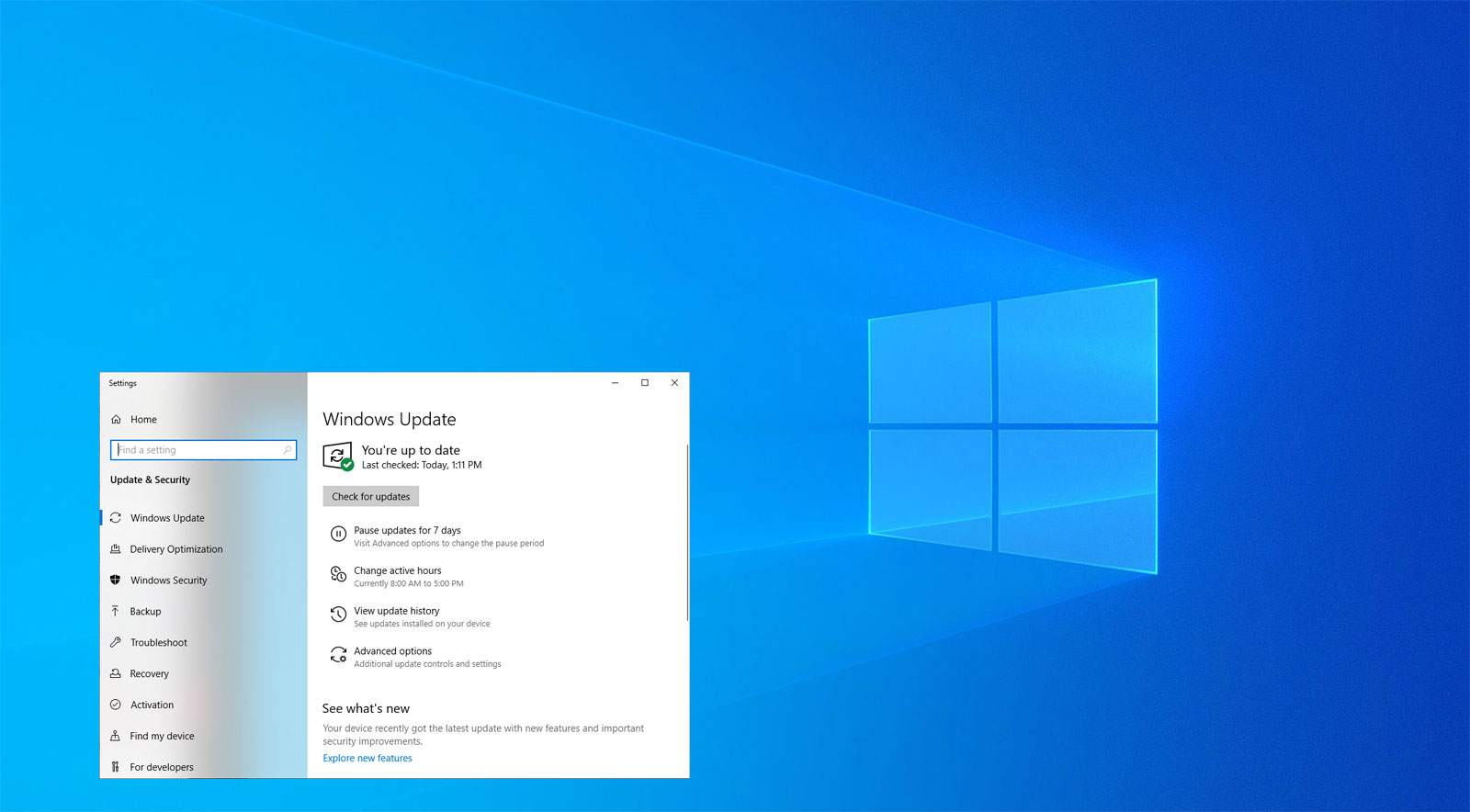Microsoft to pause non-essential Windows updates starting in May
Reading between the lines, this is a move to make Windows more stable while people work from home.

As more people find themselves telecommuting to stop the spread of the new coronavirus, Microsoft has made the decision to temporarily halt all non-security updates for every supported version of Windows, including Windows 10. The policy will go into effect in May.
"Starting in May 2020, we are pausing all optional non-security releases (C and D updates) for all supported versions of Windows client and server products to prioritize security and keep customers protected and productive," Microsoft announced on Twitter.
There's some technical jargon to unscramble there, namely the references to C and D updates. Simply put, these are updates that Microsoft pushes out in the third and fourth weeks of the month, respectively, and are not vital to the security of your PC. You could consider them non-essential updates.
So called "B" releases will continue to be pushed out as normal. Also known as Patch Tuesday releases, these are a cumulative collections of security patches that Microsoft issues on the second Tuesday of every month. The next one is due to arrive on April 14, and barring an unlikely change, will go out as planned.
The reason for hitting the pause button is to make things easier on Microsoft and Windows users in light of the coronavirus pandemic.
"We have been evaluating the public health situation, and we understand this is impacting our customers," says Microsoft in a related support document. "In response to these challenges we are prioritizing our focus on security updates ... There is no change to the monthly security updates (B release—Update Tuesday); these will continue as planned to ensure business continuity and to keep our customers protected and productive."
While Microsoft did not come right out and say it, this decision should result in less issues for users who suddenly find themselves working at home, potentially without the assistance of IT staff. Windows updates are designed to solve problems, but with so many possible hardware configurations, they inevitably cause issues in some cases as well. Reading between the lines, it seems Microsoft acknowledges this reality.
Keep up to date with the most important stories and the best deals, as picked by the PC Gamer team.
The security updates, which will continue as usual, are what's truly important, and perhaps that's even more true right now. According to Trend Micro, bad actors have been taking advantage of the coronavirus situation with a "variety of malicious campaigns,"
"As the number of those afflicted continue to surge by thousands, campaigns that use the disease as a lure likewise increase," the security outfit said.
These campaigns have run the gamut from phishing attempts to injecting malicious code into live tracking maps. If you're anyone's source of technical advice, now is a good time to remind them to watch out for suspicious emails and links.
Paul has been playing PC games and raking his knuckles on computer hardware since the Commodore 64. He does not have any tattoos, but thinks it would be cool to get one that reads LOAD"*",8,1. In his off time, he rides motorcycles and wrestles alligators (only one of those is true).


